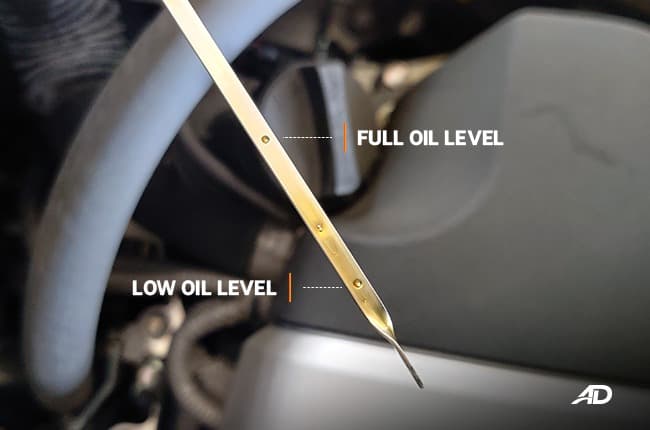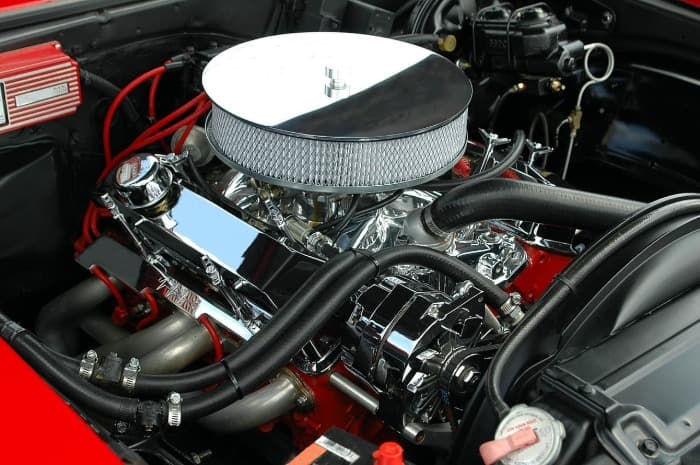Table of Contents
- Introduction
- Check your car’s oil level regularly and change it every 5,000 miles
- Inflate your tires to the proper pressure – underinflated tires can cause decreased gas mileage.
- Keep your engine clean by changing the air filter and spark plugs.
- Get regular tune-ups to ensure that your car is running smoothly
- Don’t wait until your gas tank is empty to fill upkeep it at least half full to avoid damage to the fuel pump.
- Conclusion
- Frequently Asked Questions about basic car maintenance
Home » Basic Car Maintenance For Maximum Performance
Introduction
Maintaining your car properly is essential for running it efficiently and avoiding costly repairs. By following a few simple maintenance tips, you can extend the life of your vehicle and keep it performing at its best. In this blog post, we’ll explore some essential car maintenance tips that will help keep your car running smoothly. Read on to learn more!
Check your car’s oil level regularly and change it every 5,000 miles
It is essential to maintain your car’s oil level. When it falls too low, it can prevent the engine from working correctly and lead to more expensive repair costs. Checking the oil regularly is an easy way to protect your car’s longevity and performance. To save money in the long run, it’s recommended that you change your car’s oil every 5,000 miles. As with most maintenance tasks, prevention is critical — preventative measures can help keep costs low for more extensive repairs down the road.
Inflate your tires to the proper pressure – underinflated tires can cause decreased gas mileage.
The tires on your car are like the shoes on your feet – they provide traction and stability and help you get to where you need to be. But similar to how tight or loose shoes can affect our stride, over- or underinflated tires can affect your vehicle’s performance.
This is especially true regarding fuel economy – underinflated tires mean that your engine has to work harder as it has extra resistance due to the reduced tire pressure. To ensure this doesn’t happen, take some time regularly to check the air pressure in each of your tires and inflate them when they’re too low. Doing so not only improves grip and handling but will also help maximize gas mileage and keep more money in your pocket.

Keep your engine clean by changing the air filter and spark plugs.
Maintaining a clean engine is essential for ensuring your vehicle runs at its best. Regularly changing the air filter and spark plugs can help lower emissions, improve fuel economy and reduce engine wear. Pollutant particles catch in the air filter and prevent them from gathering in your engine, resulting in less dust, dirt, rust, and other contaminants that can cause significant issues if left unchecked over time.
The spark plugs are essential as they deliver electricity to the vehicle’s cylinders, which it is used to ignite the fuel-air mixture. If they become dirty or worn out, they can lead to misfires, reduced power output, and excessive smoke produced when driving. Regularly keeping your engine clean by replacing these components can save you money on costly repairs.
Get regular tune-ups to ensure that your car is running smoothly
Stable tuning up of the car
Regular car tune-ups are essential for ensuring that your car runs with optimal performance and efficiency and can even help you to avoid costly repairs down the road. At a tune-up service, your vehicle will receive a thorough check-up from an auto mechanic who can troubleshoot and address any potential problems – no matter how minor.
Keeping up with regular tune-ups means that you’re taking the steps needed to protect your investment in your vehicle and increase its longevity. It will prevent surprises like breaking down on the side of the road, and it can even improve gas mileage and save you money!
Don’t wait until your gas tank is empty to fill upkeep it at least half full to avoid damage to the fuel pump.
Ignoring the gas tank in your vehicle can cause regrettable and costly repair issues. To avoid this, it is best practice to ensure that your gas tank remains at least half full. If a fuel pump runs dry due to a low level of fuel in the tank, it can cause significant damage that a qualified mechanic must address.
Taking extra care to routinely check the amount of fuel in your car’s tank can save you from having to spend significant time and money dealing with the consequences of not doing so. Being mindful of your current fuel level will keep you prepared for any excursions you may decide to embark on, saving you from any inconvenient surprises.
Conclusion
Regular car maintenance is essential to keeping it running well and avoiding costly repairs. Check your oil level and change it every 5,000 miles, inflate your tires to the proper pressure, keep your engine clean, and get regular tune-ups. Additionally, don’t wait until your gas tank is empty to fill up – Keeping it at least half complete will help extend the life of your fuel pump. By following these simple tips, you can save yourself time and money in the long run.
Frequently Asked Questions about basic car maintenance
What are some essential car maintenance tips for maximum performance?
There are a few essential car maintenance tips that you can follow to ensure maximum performance. Changing your engine oil every 5,000 miles, inflating your tires to the recommended pressure level, keeping your engine clean, and getting regular tune-ups are all essential for ensuring your car runs at its best. Additionally, it’s important not to wait until your gas tank is empty to fill up – Keeping it at least half complete will help extend the life of your fuel pump.
How often should I change my oil?
The average car needs its oil changed every 5,000 miles. However, this number can vary depending on the make and model of your vehicle, as well as your driving habits. You should always consult your car’s owner’s manual to find the recommended oil change interval for your specific vehicle.
What are the benefits of changing my oil regularly?
There are several benefits to changing your oil regularly. For one, it helps to keep your engine running smoothly and at its peak performance. Additionally, changing your oil regularly can help you avoid costly repairs down the road. By ensuring that all of the components in your car are functioning correctly, you can enjoy improved gas mileage and reduced emissions. Finally, changing your oil is a relatively inexpensive way to keep your vehicle running in top condition.
How often should I check my tire pressure?
It is recommended that you check the tire pressure in your vehicle at least once a month, which will help ensure that all four tires are inflated to the manufacturer’s specified level stress. If your tires are not correctly inflated, it can lead to damage, reduced fuel efficiency, and an increased risk of accidents.
What are the benefits of keeping my tires properly inflated?
Maintaining the correct tire pressure is essential for several reasons. For one, it can help you save money on gas. Inflated tires travel farther on a gallon of fuel than under-inflated tires. Additionally, properly inflated tires wear more evenly and last longer than those not raised correctly.
Undersized or oversized tires can also adversely affect your car’s handling, braking, and steering. By keeping your tires properly inflated at all times, you can enjoy all of the benefits of correctly sized and balanced tires.


